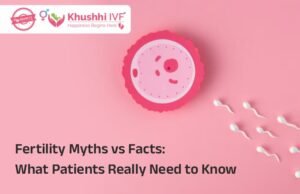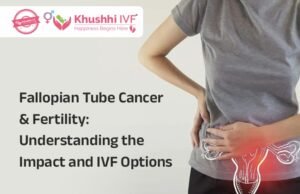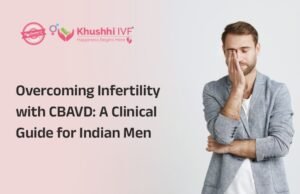There are a lot of couples out there who want to become pregnant but can’t get positive results for some reason or other.
Did you know, every 1 in 6 couples have problems getting pregnant?
Couples facing infertility frequently resort to assisted reproductive technologies, such as intracytoplasmic sperm injection (ICSI) or in vitro fertilization (IVF), to fulfill their desire to become parents. While these treatments are similar, they differ in the methods utilized to fertilize eggs.
Before you make any major decisions, such as whether to pursue IVF or ICSI therapy, make sure you have done your homework and do not feel rushed into anything.
If you are thinking about either of these treatments, it may be beneficial to understand the distinctions between them so that you can make an informed choice. In this article, we will look at the differences between IVF and ICSI, as well as which one is best for you.
ICSI vs. IVF: Find Out Everything About It.
1. Definition
What does IVF mean?
IVF (in vitro fertilization) is widely used worldwide, with over 8 million children born through this technology since its inception in the 1970s.
In IVF treatment, doctors extract eggs from a woman’s ovaries and fertilize them with sperm in a laboratory dish. After fertilization, they examine the embryos for up to five days before placing them back into the woman’s uterus. They typically perform this procedure under mild injectable sedation.
What is ICSI?
ICSI (intracytoplasmic sperm injection), on the other hand, is a more advanced type of IVF. When there are problems with sperm motility or a low sperm count in the male partner, this procedure is frequently employed.
In this approach, doctors inject a single sperm into an egg using a specialized micropipette to aid fertilization. They then monitor the fertilized eggs and transfer the embryos back to the uterus, usually 3-5 days after fertilization. This procedure typically involves moderate sedation.
2. Process
The ICSI infertility treatment process is as follows
- Ovulation stimulation: The process begins with the female partner stimulating her ovaries with hormones to produce many mature eggs.
- Egg retrieval: When the eggs are ready, they are extracted using a minimally invasive procedure known as transvaginal ultrasound-guided egg retrieval.
- Sperm collection: It involves taking sperm samples from either the male spouse or a sperm donor.
- Sperm injection: This step involves inserting one healthy sperm directly into each mature egg using a small needle and a specialized microscope.
- Culture and Embryo Transfer: After a few days of cultivation, one or more of the fertilized eggs—now embryos—are inserted into the woman’s uterus using a tiny catheter.
The entire process of IVF treatment includes
- Ovulation stimulation: It is utilized to cause numerous ovulations in the female partner to produce viable and high-quality eggs.
- Egg retrieval: This step involves around leveraging transvaginal ultrasound-guided procedure for removing mature eggs.
- Fertilization: In in vitro fertilization (IVF), sperm and eggs are combined and left to naturally fertilize in a lab dish. This approach allows sperm to compete for access to the egg.
- Culture and Embryo Transfer: Fertilized eggs take several days to develop into embryos, of which one or more are inserted into a woman’s uterus.
Additional Read
Step-by-Step Explanation of the IVF Treatment Procedure
3. Cost
When deciding on the best sort of fertility therapy, the financial factor is extremely important. The cost of ICSI is slightly more than that of regular IVF because it is a more complicated operation.
ICSI may often cost between Rs. 1,50,000 and Rs. 2,50,000, whereas IVF cost between Rs. 1,00,000 and Rs. 2,00,000. However, as this is only an approximated range, the actual cost may differ for each patient depending on several variables, including location, type of fertility, and condition.
However, considering the effective success rate, the money investment for these infertility treatments is surely worth the shot. To know more about its success rate, keep reading.
4. Success Rate
The truth is that both of these therapies have relatively high success rates, owing mostly to the fact that IVF and ICSI have similar embryo implantation rates.
IVF success rates range from 40 to 60 percent, but ICSI success rates range from 50 to 80 percent.
ICSI may appear to be preferable to normal IVF because it involves a more selective selection of the healthiest options for fertilization. Naturally, ICSI may provide a slightly better likelihood of successful fertilization and pregnancy than traditional IVF in cases of male infertility.
That being said, the success percentages are virtually the same in cases when male infertility is not a concern. As with traditional IVF, the cumulative live birth rate, or success rate for fertilization and pregnancy, increases with each subsequent cycle.
5. Health Effects
When done by experts, both IVF and ICSI are extremely safe processes. But, still, there are some rare health effects. Some of the most common use cases are as follows:
Health effects on moms
- Fertility drugs can cause swollen and painful ovaries.
- Higher chance of twins or triplets, which can lead to complications like early labor and high blood pressure.
- The process can be emotionally challenging, leading to stress or anxiety.
- Minor risks like infection or bleeding during egg retrieval.
Health Effects on the Child
- Low birthdate in babies.
- Increased chance of early delivery, especially with multiple pregnancies.
- A small increase in the risk of birth defects.
Make sure to consult with the expert to ensure a safe process and be aware of risks to prevent it.
6. Benefits
IVF and ICSI are two of the most popular and beneficial methods for infertility and can help couples struggling with infertility, improving their chances of conceiving a healthy baby.
Benefits of IVF (In Vitro Fertilization)
- Increased Pregnancy Chances: IVF helps couples with infertility issues like blocked fallopian tubes or unexplained infertility.
- Genetic Testing: It allows for screening embryos for genetic conditions before implantation.
- Flexible Timing: This treatment option offers the option to freeze embryos for future use, letting couples choose when to have a baby.
- Multiple Eggs: With IVF, couples can increase their chances of pregnancy by fertilizing multiple eggs at once.
Benefits of ICSI (Intracytoplasmic Sperm Injection)
- Male Infertility: ICSI is great for men with low sperm count or poor sperm quality, as it involves injecting a single sperm directly into an egg.
- Improves Fertilization: This treatment option can help when traditional IVF fails to fertilize eggs.
- Higher Success for Severe Cases: It helps couples with severe male infertility to have a biological child.
- Widens IVF Success: Through this, the couple can enhance their chances of the overall success rate of IVF by addressing fertilization issues.
7. When to choose?
ICSI is mainly used to treat male-factor infertility. When one of the following circumstances makes it unlikely for sperm to enter and fertilize an egg, this is typically the recommended course of action:
- The number of sperm is minimal.
- There is insufficient motility in the sperm.
- Sperm are extracted surgically from the testicles or epididymis; they are not present in the semen.
- The female partner has an anti-sperm antibody.
When someone uses frozen eggs or sperm, eggs from women over 35, or has had unsuccessful fertilization using traditional IVF procedures, doctors frequently suggest ICSI. Nowadays, the ICSI technique is used in roughly 60% of IVF treatments, with a successful fertilization rate of between 50% and 80%.
IVF is recommended as a possible treatment option for infertility when couples are facing the below problems.
- The female partner has blocked or damaged fallopian tubes.
- The couple has been diagnosed with unexplained infertility.
- The female partner has ovulation disorders, such as polycystic ovary syndrome (PCOS).
- The female partner has endometriosis, which can affect egg quality or implantation.
- The male partner has mild sperm abnormalities that don’t require ICSI.
To increase the chances of a successful pregnancy, doctors may recommend IVF with preimplantation genetic testing for individuals or couples with a history of genetic problems.
ICSI vs IVF: Which to Choose?
All in all, the best treatment fertility treatment option will be determined by your unique circumstances and fertility goals. And, if you think that is somewhat challenging to find out what is preventing you from becoming pregnant and which is the best method for infertility – connect with us.
We at Khushhi IVF understand your problems and suggest you the best treatment option based on your requirements and finances. We are a leading infertility treatment center in India with a team of professionals offering best-in-class services at affordable rates.





